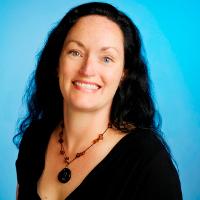
National Indigenous Peoples Day on June 21 is a day for all Canadians to recognize and celebrate the unique heritage, diverse cultures and outstanding contributions of First Nations, Inuit and Métis peoples. To mark the national day, U of G highlights professors working to improve life for Indigenous peoples in Canada through their research. All are available for interviews:
“Indigenous peoples around the world rely on oceans for food, cultural expression and commerce,” says Jennifer Silver, a professor in U of G’s Department of Geography, Environment and Geomatics. She studies the importance of fishing in coastal Indigenous communities and looks at how industrial fishing and aquaculture can impact Indigenous peoples’ access to marine resources.
Silver works with coastal First Nations in British Columbia to understand and improve community access to marine resources and appropriately incorporate Indigenous values, knowledge and objectives into fisheries management. She’s involved with The Clam Garden Network, a group that brings together First Nations and researchers to understand, promote and reconstruct traditional intertidal rock walls that protect and improve shellfish harvest beaches.
She has studied the contributions of fishing to Indigenous health, well-being and livelihoods. She has also worked on Indigenous fishing rights in the Pacific Northwest, Indigenous harvest practices and federal fisheries management roles and aspirations, as well as newly tabled federal legislation that will incorporate Indigenous knowledge and fishing rights in the federal Fisheries Act.

Contact: jsilve01@uoguelph.ca
Hannah Tait Neufeld, a professor in U of G’s Department of Family Relations and Applied Nutrition, has been involved in community-based Indigenous health research for almost 20 years, working primarily with communities in southern Manitoba and Ontario. Most of her work addresses maternal health, Indigenous foods and nutrition. Neufeld co-edited a recently published collection called Indigenous Experiences of Pregnancy and Birth.
She is studying how traditional foods can bring together local Indigenous communities. The four-year research project called Bridging Place and Social Spaces: Building Healthful Relationships Towards Indigenous Food Sovereignty in Southwestern Ontario addresses traditional food access and knowledge barriers in this region.

Contact: hannahtn@uoguelph.ca
Prof. David MacDonald‘s primary focus is on Indigenous politics in Canada, particularly Indian residential schools. While studying the experiences of First Nations children and youth in residential schools in Canada, he interviewed numerous residential school survivors and government officials, and attended Truth and Reconciliation Commission of Canada (TRC) events and statement gatherings, healing circles and conferences, where many survivors shared their experiences.
MacDonald, a professor in U of G’s Department of Political Science, has studied the Sixties Scoop and Indigenous children currently in care. He says care of Indigenous children has become a Canadian crisis rooted in a biased system. In many Indigenous communities, family is more community-based with grandparents and extended family caring for children when their parents cannot. The current child welfare system views the nuclear family as the ideal situation, he says, leading to many of these children being taken from their communities.

Contact: dmacdo03@uoguelph.ca
Brittany Luby, a professor in the College of Arts, researches Indigenous waterways, food ways, women’s issues and literature as a tool for reconciliation.
On June 16, Luby visited Ottawa to receive the Brian Long Best Doctoral Thesis in Canadian Studies, an international award for her work on hydroelectric development and Anishinaabe resistance in Treaty #3.
Luby recently published the poem To Hayter Reed, Former Deputy Superintendent of Indian Affairs in the winter 2018 issue of Prairie Fire. The piece addresses colonial intervention and food insecurity.
Her other creative works include a children’s picture book to be published by Little Brown in fall 2019 and a piece of collaborative art as a member of the I STAND #INUNITY collective during the 2017-18 academic year.

Contact: brittany.luby@uoguelph.ca